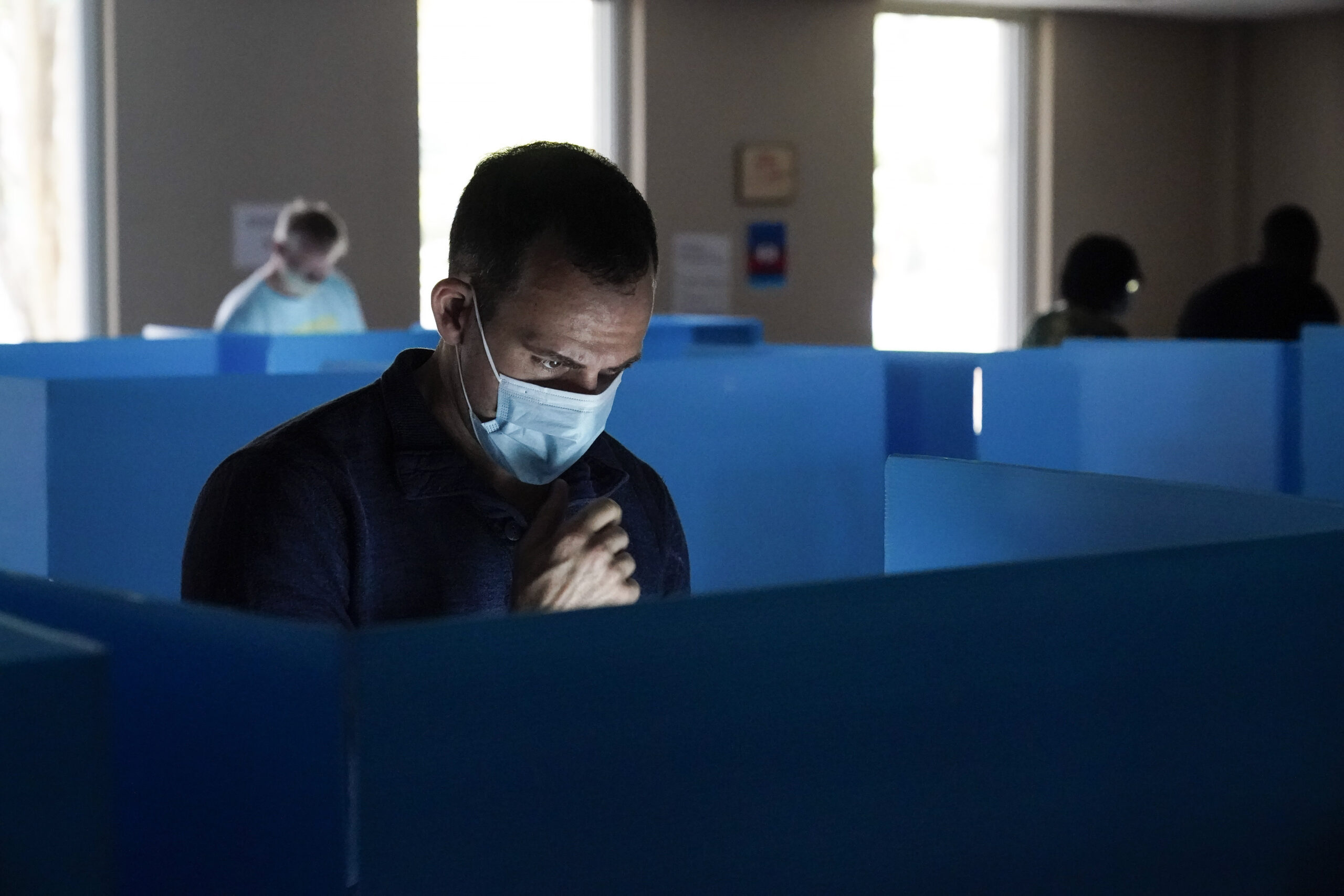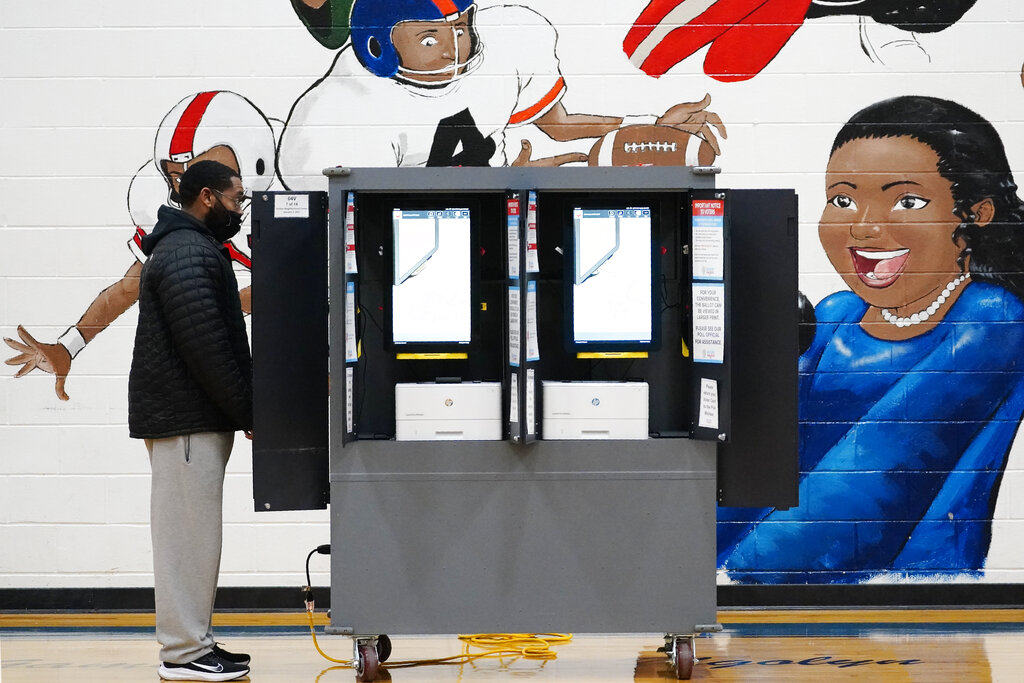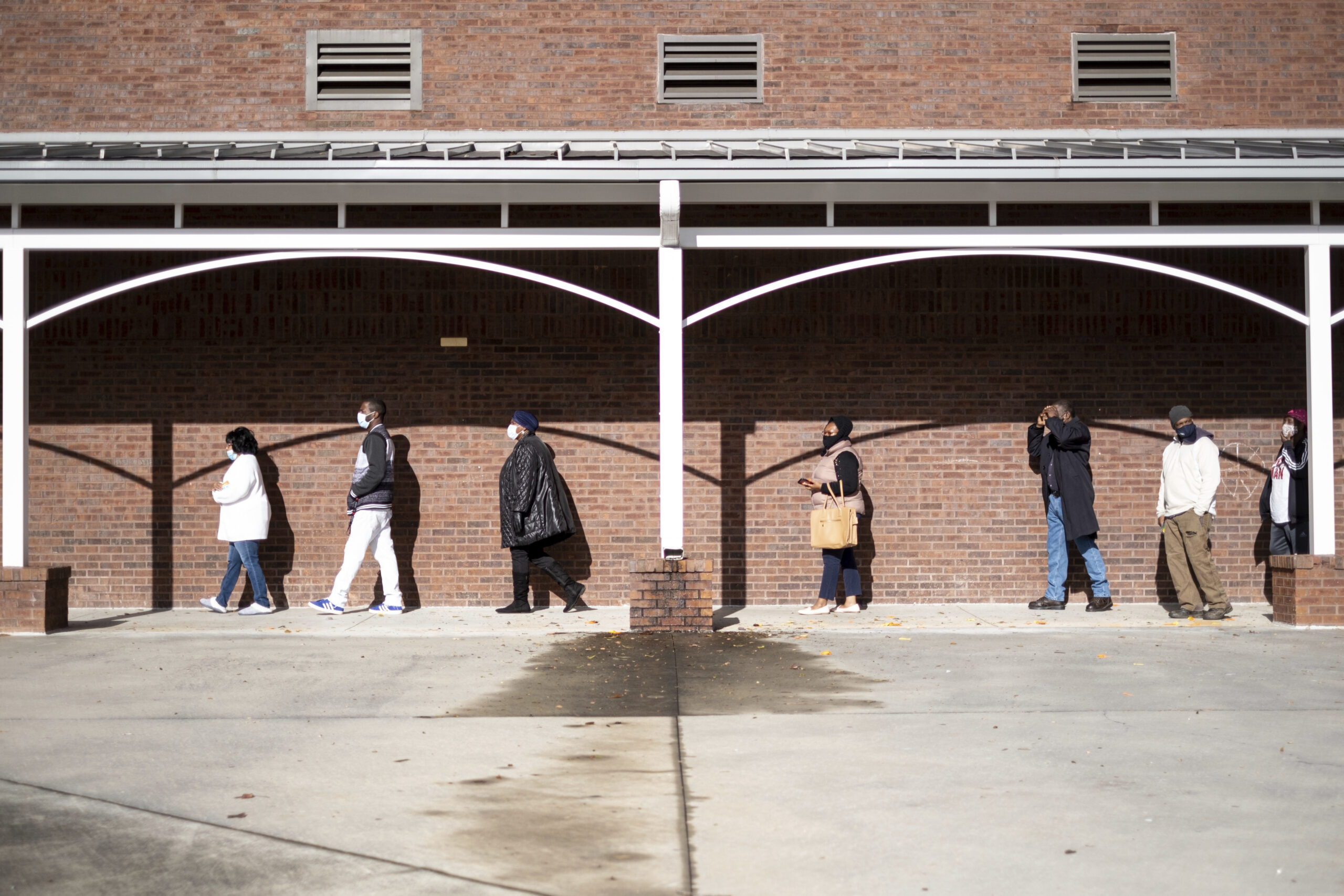Georgia Officials Expect Outages Won’t Affect Election Day

A voter makes choices on the ballot in the glow of a voting machine at the Dunwoody Library after Hurricane Zeta knocked out power in the surrounding areas Thursday.
Brynn Anderson / Associated Press
Georgia officials say they don’t expect power outages caused by severe weather that swept through parts of the state to interrupt Election Day voting.
The remnants of Hurricane Zeta, which hit southeastern Louisiana as a Category 2 storm Wednesday, swept across northern Georgia, knocking down trees and leaving more than a million residents without power early Thursday. But power crews quickly sprang to action, working nonstop to restore electricity.
Statewide, roughly 255,000 customers in Georgia were still without power Friday afternoon, nearly 36 hours after the storm barreled through.
Allison Gregoire, a Georgia Power spokeswoman, said the company expects to restore power to about 95% of its customers by Sunday night.
“We should be back and rolling by Election Day,” she said Friday.
Gabriel Sterling, voting system implementation manager for the secretary of state’s office, said he’s been in close contact with Georgia Power and with the electric membership cooperatives and expects power to be restored to the state’s 2,419 Election Day polling places by Tuesday.
But he also said the secretary of state’s office is talking to the state emergency management agency about backup generators. All of the voting machines have a minimum two-hour battery backup and polling places are required to have backup paper ballots on hand for emergencies, he added.
At least one polling place had to be changed because of storm damage.
Election officials in Cobb County announced Friday that Georgians who would have voted at Sandy Plains Baptist Church in Marietta will now vote at Holy Trinity Lutheran Church, which is less than half a mile away on the same street.
More than 3.6 million people had cast votes in Georgia by Friday morning, either in person or by absentee ballot. Secretary of State Brad Raffensperger encouraged anyone who still plans to vote by absentee ballot to put their ballot in a drop box or bring it to their county elections office because there’s likely not enough time for it to be received by the 7 p.m. deadline on Election Day if it’s sent by mail.
Also Friday, the state election board voted unanimously to approve a consent order to resolve cases it had referred to the state attorney general’s office having to do with concerns about Fulton County’s handling of the June primary. Those included a failure to process some absentee ballot applications, polling places opening late, inadequate training of poll workers and a failure to provide necessary Election Day supplies and forms to polling places.
As part of the consent order, the board ordered Fulton County to pay a civil penalty of $50,000, but the board agrees to waive that penalty if the county fully implements measures outlined in the order for the general election Tuesday.
An attorney for the county, which is the state’s most populous and includes most of Atlanta, previously said county election officials acknowledged that there were problems during the primary, many of them caused in large part by the ongoing coronavirus pandemic. The consent order clarifies that it “is not to be construed as an admission of guilt or liability” on the county’s part.
The consent order recognizes the challenges faced by Fulton County and the efforts made by the county’s elections staff but says there were violations of the state election code.
According to the order, Fulton County agrees to have adequate resources to process absentee ballot applications and then process returned absentee ballots by the next business day after they’re received, have at least 2,200 poll workers and a sufficient pool of trained alternates, have at least 24 early in-person voting locations, have at least 255 Election Day polling places, have a technical support staffer on hand in every polling location on Election Day and dedicate sufficient resources for a post-election audit.
Fulton County has already made many of the changes required by the order, including going beyond some of the requirements.
The consent order also says the state election board may appoint an independent monitor to oversee progress and compliance with the order. The board agreed to appoint Carter Jones, who has previous experience working on elections in other parts of the world, secretary of state’s office general counsel Ryan Germany told the board.







